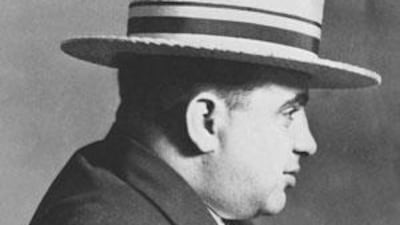In the catalogue of financial crime, money laundering and insider dealing are often regarded as the most difficult to prosecute. The latter has baffled regulators and prosecutors around the world for many years. There is a suspicion that insider dealers are not really criminals at all. A punter hears a bit of information, does a quick deal and pockets the profit. Who has lost? Where are the victims?
It is a quandary that has made governments and financial agencies reluctant to bring prosecutions for insider dealing, even when there is pretty strong evidence. Proving intent is often difficult, and where actions have been brought, cases are often halted or dismissed before a conviction. It would be an exaggeration to say that these difficulties have made the world's financial policemen give up on insider dealing. But there is certainly a great reluctance to pursue apparently obvious cases.
Money laundering is rather different, but no less difficult to tackle. In money laundering, it is not the apparent absence of a victim, or the vagueness of intent, that proves the obstacle. It is the complexity of the trail of financial transactions, spanning jurisdictions with varying legal regimes and transparency standards, that often stymies the prosecutors. Take this hypothetical example. A senior politician in a central Asian or African country (those two regions usually feature high on the list of offenders) trousers a chunk out of the state's budget. He sends it offshore somewhere such as Panama in Central America, or the Marshall Islands in the Pacific, where disclosure of beneficial ownership is not required by law. From there, the cash moves back, in the names of the politician's relatives, to a second-ranking financial institution, perhaps in the Gulf, where it is transformed into apparently clean assets, as cash in bona fide accounts, or property, for example.
In those three moves, it has been made virtually impossible to trace the origin of the funds. Even if the first link in the chain, the theft of government funds, could be nailed down with certainty, the authorities in subsequent jurisdictions are often not willing to co-operate with an inquiry from global asset-tracers or law-enforcers. Where money laundering is suspected, the trail often goes cold after the first movement of assets.
It is worth reminding ourselves what constitutes money laundering. The term was first used in the US in the 1930s as the authorities there tried to tackle organised crime, though not, as is sometimes suggested, because of the gangster Al Capone's habit of hiding his cash in a washing machine. At that time, it was defined as the movement and deployment of the financial proceeds of crime, such as extortion, gunrunning or drug smuggling.
These days, money laundering is more widely regarded as the process of disguising the origin of assets gained by any criminal act. This of course takes in crimes such as terrorism, drug dealing or piracy on the high seas. But an increasingly ubiquitous modern form of money laundering consists of politicians stealing money from their own people, either directly from the exchequer, or indirectly by siphoning a portion of international aid and grants into their private bank accounts.
A more despicable form of theft, by those entrusted with the peoples' welfare in countries where poverty and deprivation are rife, is hard to imagine. The difficulties of detecting and prosecuting money laundering were brought into sharp regional focus this week with two cases, one in Bahrain, the other in Dubai. They illustrate that the problem is a growing one for the Gulf, which has vast funds of liquidity in which it is comparatively easy to hide assets, but where the regulatory and legal framework is often lacking, sometimes despite the best endeavours of the authorities.
In Bahrain, the case involved a government minister who was dismissed from his position by the king after an investigation into alleged money laundering, which the minister in question emphatically denied. The money trail involved Bahrain, Kuwait, Iran and Sudan. Trying to unravel that chain will keep Bahraini prosecutors in employment for many years to come, if a decision is ever taken to bring charges. And Bahrain has one of the more advanced anti-money-laundering regimes in the region.
In Dubai, the prosecution of the biggest money-laundering case in the emirate's history ended with the acquittal of four suspects and seven companies accused of processing some Dh891 million (US$242.6m) through the UK and the Netherlands Antilles. The lawyer defending the acquitted men summed up just how difficult it is to bring prosecutions in such cases: "The Dubai prosecutors held meetings and interrogations with European officials, but they couldn't prove the money was earned from money laundering."
It must be emphasised, of course, that the due process of law was observed and the defendants acquitted, so justice was seen to be done. But perhaps the authorities in GCC countries need to work out a common platform to tackle money laundering. This far-from-victimless crime is on the increase. fkane@thenational.ae

